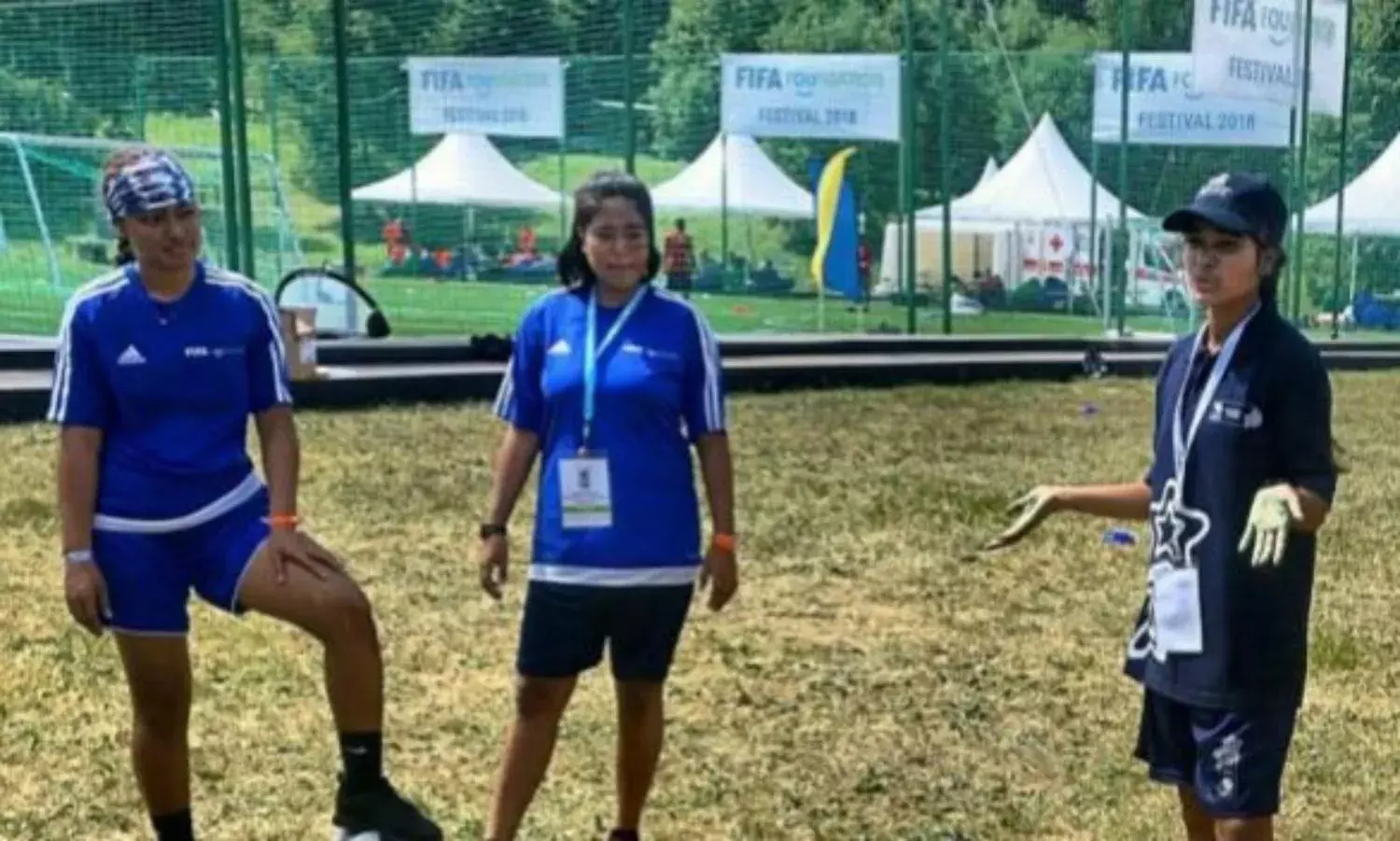'Leave Football, Or Leave the Village': Travails of Sunita G, Footballer From Jharkhand
Sunita G, Teenage Footballer from Jharkhand and Youth Ambassador for Qatar 2022

Sports will teach you what a book cannot. The Citizen recently interviewed Sunita G, an 18 year old football player from Jharkhand who is the Young Generation Ambassador for the Qatar 2022 World Cup, and is associated with the organisation Yuwa [Youth], which is one of many trying to combat misogyny in sports.
Recounting her beginnings as a footballer, Sunita said of her first coach: “When I first saw Franz, I was very happy to meet a white man, and wondered why he looked different from us.”
She came to know Franz that coached football. A neighbour who was a coach at YUWA, asked her if she wanted to play football. At the time, Sunita said, she had no clue what football was.
Coming from a Hindi medium school, language was a barrier to communication. “I had a limited vocabulary, and only knew how to greet someone in English. So whenever my coach told me something, I would just smile, not knowing what to say. But soon after, Franz helped all of us get admission in an English medium school.”
The force driving Sunita was the football scholarship programme. “My mother, older sister and I would often fight with others in the family because I had to maintain my scholarship, and explain to them how difficult it was to get one.”
“When we went for our first practice, we wore normal salwars, but it was difficult to play in them. We had to wear shorts, and when I told my parents this, they simply said ‘NO’. But my elder sister fought with them. All of us girls came together, and we were able to persuade them.”
But the hurdles didn’t stop there. After the family the next circle that had to be convinced was their neighbours and other villagers. “When we started wearing shorts and shoes, many of the villagers taunted us, saying ‘these women are becoming men’. We were seen as a bad influence on other girls,” said Sunita.
“They gave us two options: we could either leave football or leave the village. After a year many of the girls dropped out for this reason.”
Eventually, Sunita and some other players were sent to the USA for training. Asked about this, after a long pause Sunita told The Citizen, “Being a Hindu, after I returned from the US the people of my village started accusing me of having consumed beef. Also, once I invited people from Yuwa to my place but my relatives made a huge fuss, saying ‘They are Christians, how can you invite them.’ Little did they know that they were Hindus like us.”
“Some people beat up my parents for letting me invite my friends. I felt really embarrassed in front of my guests. I had to ask them to leave.”
With a deep sigh Sunita added, “That was the biggest challenge I faced. I can never forget that day. We had a panchayat meeting after that, where I was very vocal about how other people could not invade my personal life.They had no right to pop up from nowhere and humiliate me.”
Sunita said the people in her village remain sceptical when it comes to women and religion. What astonishes her most is how, “despite being educated, they act like illiterates.”
Nevertheless, for the last three years Sunita has been coaching the local under-14 football team. On being asked about the biggest opportunity she had got, she said it was “being the Youth Ambassador for Qatar 2022. It is a four year programme, where one develops life skills.
“It has given me a chance to bring change to my community - and for that matter a lot has changed since then. Now, girls in my village are allowed to play, they can take care of themselves.”
Sunita told The Citizen how, “when we had to leave for America, the parents of all the participating girls had to sign an undertaking that they wouldn’t get their girls married till the age of 25. I am really happy because of that. If it hadn’t happened I would have been married by now.”
Sunita is 18 now, and described how “till date, my relatives come to my mom and try to brainwash her by putting the unnecessary burden of marriage on us. They tell her no one will marry your daughter if you wait till she’s 25. They try to persuade my parents to break the undertaking. I remind my mom that she doesn’t need to worry. I am taking care of myself, I am economically independent, and I know I’m not doing anything wrong.”
Sunita G has set an example for many. She redefines the notion of believing in oneself. With constant hard work and determination, Sunita continues her fight against the rigid norms of society, equipped with her tools of football and education.
“I won’t quit. Every single time I am on the pitch, I have to prove myself and to the people of my village that we can achieve something out of it.”



